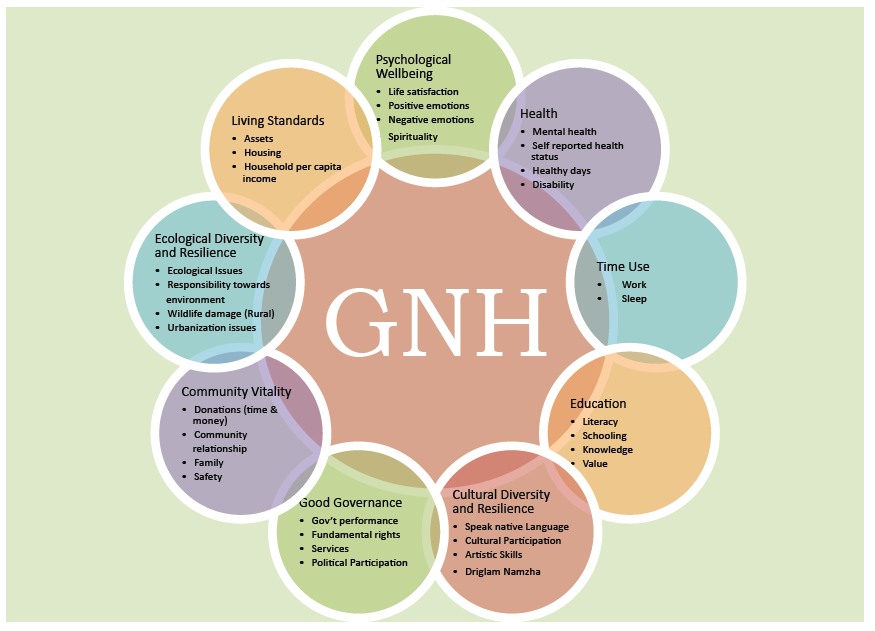Gross National Happiness
What does it mean to be "successful" in life?
Remarks by Presidential Candidate Robert F. Kennedy
University of Kansas, March 18, 1968
Too much and for too long, we seemed to have surrendered personal excellence and community values in the mere accumulation of material things. Our Gross National Product, now, is over $800 billion dollars a year, but that Gross National Product - if we judge the United States of America by that - that Gross National Product counts air pollution and cigarette advertising, and ambulances to clear our highways of carnage.
It counts special locks for our doors and the jails for the people who break them. It counts the destruction of the redwood and the loss of our natural wonder in chaotic sprawl.
It counts napalm and counts nuclear warheads and armored cars for the police to fight the riots in our cities. It counts Whitman's rifle and Speck's knife, and the television programs which glorify violence in order to sell toys to our children.
Yet the gross national product does not allow for the health of our children, the quality of their education or the joy of their play. It does not include the beauty of our poetry or the strength of our marriages, the intelligence of our public debate or the integrity of our public officials.
It measures neither our wit nor our courage, neither our wisdom nor our learning, neither our compassion nor our devotion to our country, it measures everything in short, except that which makes life worthwhile.
And it can tell us everything about America except why we are proud that we are Americans.
If this is true here at home, so it is true elsewhere in world.
In 1972, Bhutan's fourth Dragon King proclaimed:
"Gross National Happiness is more important than Gross National Product."
This became the guiding principle
for the governance
of Bhutan,
but a system of measurement
was not put in place until the 21st century.
The folly of an obsession with GDP, as a measure of economic activity which does not distinguish between those activities that increase a nation’s wealth and those that deplete its natural resources or result in poor health or widening social inequalities is so clearly evident.
If the forests of Bhutan were logged for profit, GDP would increase;
if Bhutanese citizens picked up modern living habits adversely affecting their health, investments in health care systems would be made and GDP would increase; and if environmental considerations were not taken into account during growth and development, investments to deal with landslides, road damages and flooding would be needed, and GDP would increase.
All of these actions could negatively affect the lives of the Bhutanese people yet paradoxically would contribute to an increase in GDP.
http://www.gnhcentrebhutan.org/what-is-gnh/the-story-of-gnh/
How do we measure happiness?
Good
Governance
GNH was written into the constitution in 2008
Transitioned from monarchy to parliamentary constitutional monarchy.
Sustainable
Development
Focusing on growth
of small businesses
and limited eco-tourism
Preservation &
Promotion of Culture
Environmental Conservation
Requirement to wear traditional clothing during work hours, all buildings must meet national standards, mindfulness training in schools, national cultural festivals
Healing properties of natural aesthetics and sounds in addition to energy services.
Four Pillars

Gross National Happiness
By kdukes
Gross National Happiness
An exploration of Gross National Happiness as a measure of national success.
- 1,081



